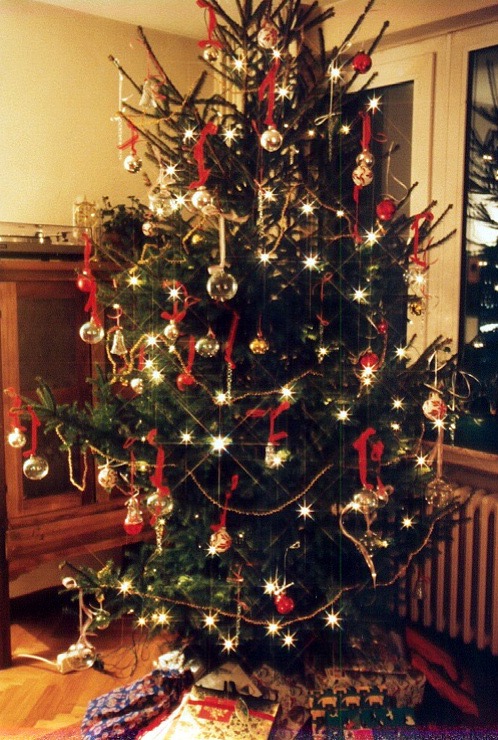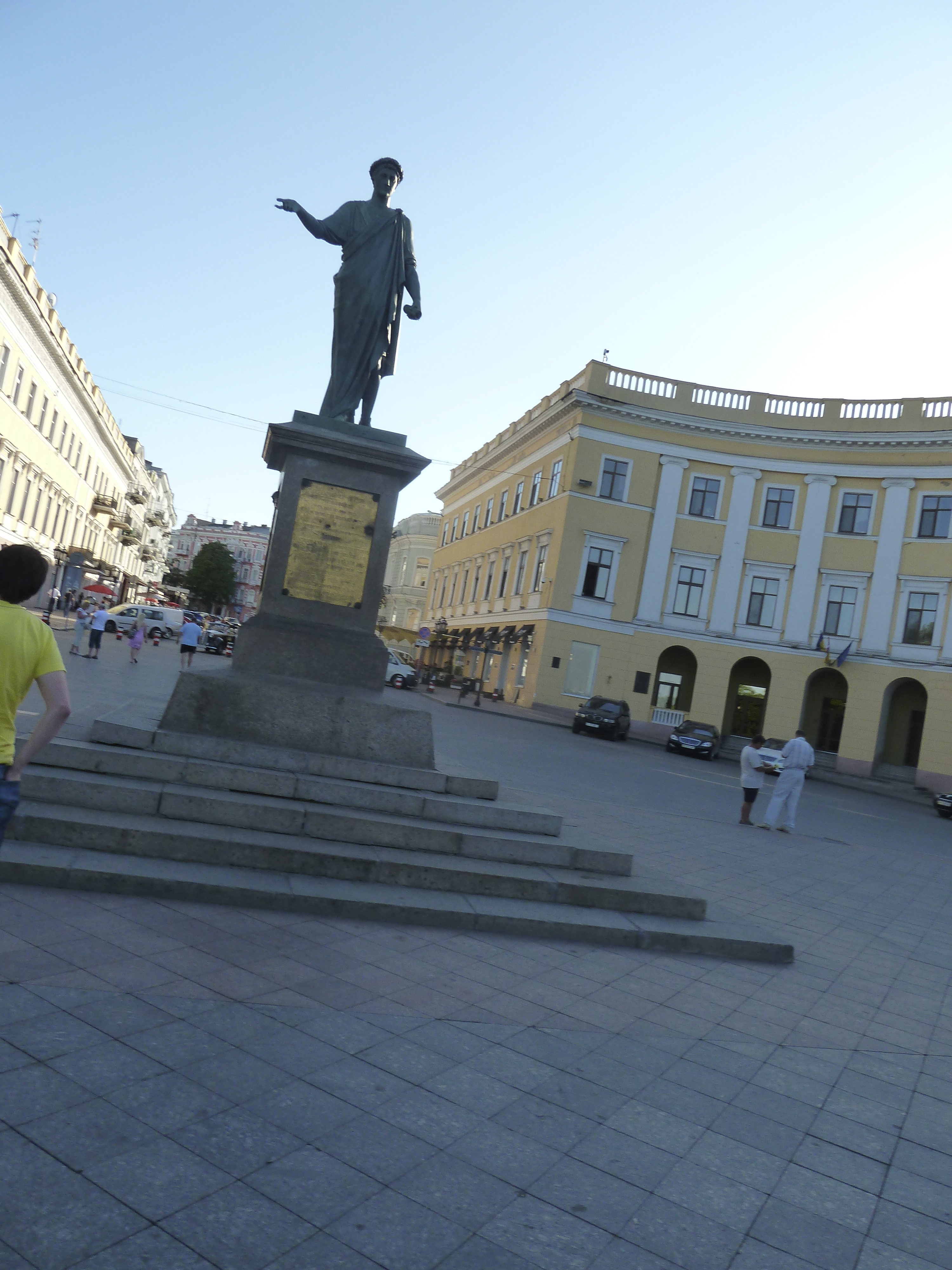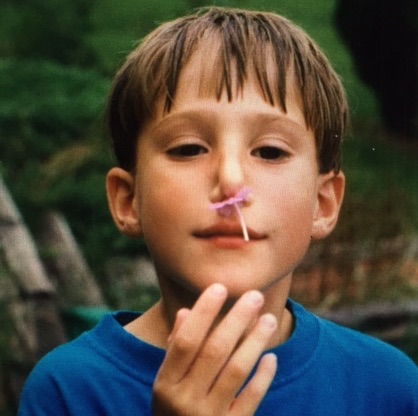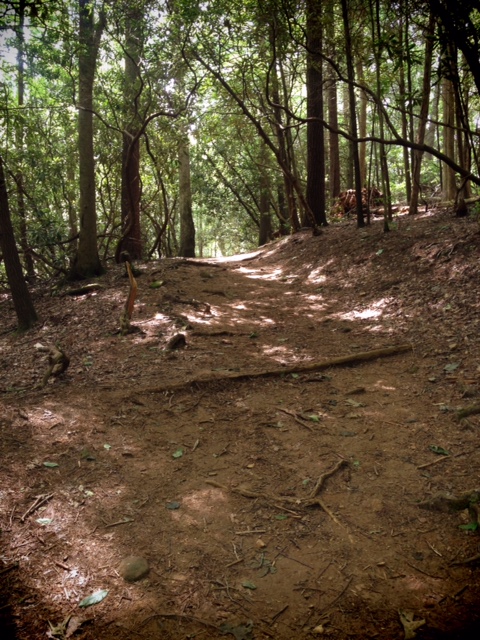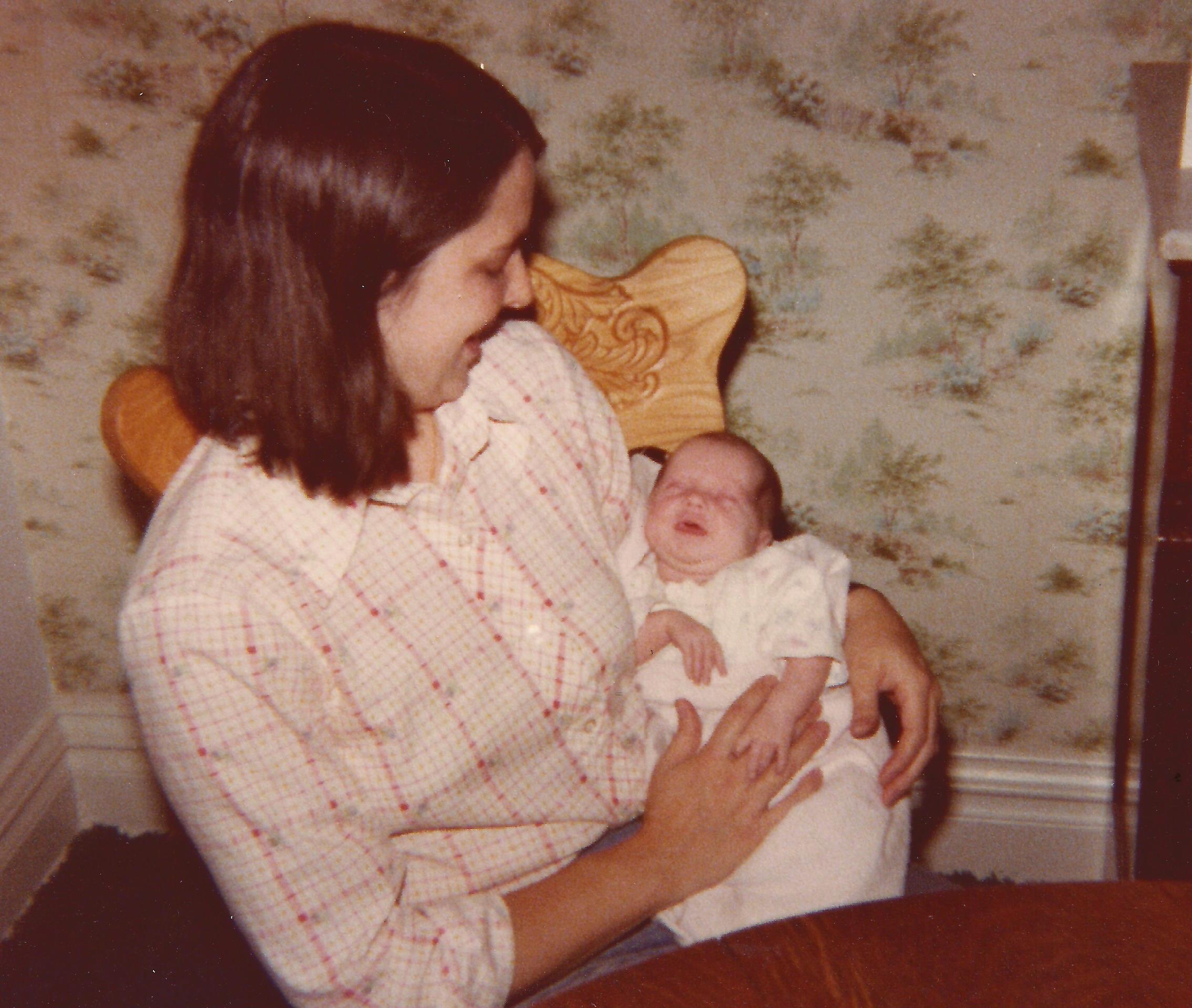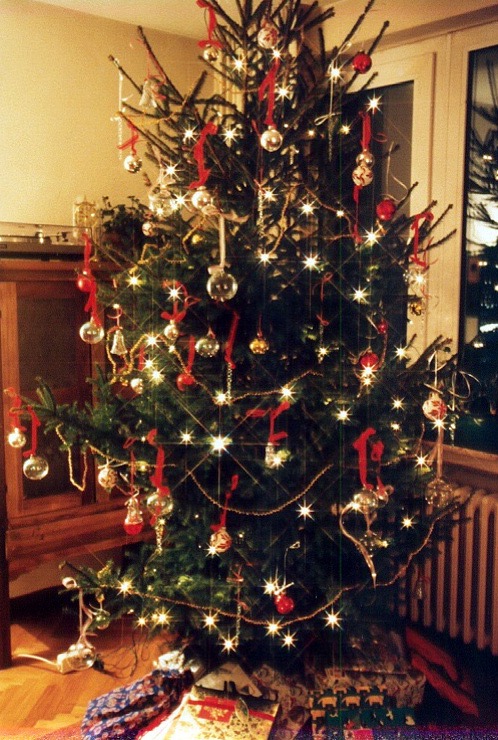Solid brick buildings surrounded orderly quads, old books smelled like wood, and smooth dips were worn into two-hundred-year-old granite stairs. I was seventeen, an eleventh grader at a New England prep school where I was a part of a river of students who flowed through halls that had sheltered my grandmother, her sisters, and before them, the sons of American revolutionaries. I sometimes think I can remember my time there in part because the frame is so clear, the setting so historic and regular, which was in stark contrast to my life at home.
That Christmas, I can’t remember how I got home to New Jersey. What I do remember is driving into the driveway in the early evening and climbing the stairs to our front door. It was our first Christmas after my parents’ divorce, and I felt crestfallen before the holiday had even begun.
I was a rulesy kid who thought things should be done a certain way. There should be cakes and cards on birthdays. Parents should pay tuition bills; students should work hard. Siblings should love each other. In all circumstances one should make an effort to be kind. And, that December, the expectation I held onto firmly was that a family home should be decorated for the Christmas holiday.
As I walked up the steps my house, the front door, unadorned in mid-December, stared me down. Its boring regularity, its refusal to rise to the occasion of Advent struck me as more evidence that my family could not get it together. When my mom greeted me with a hug on the other side of the door I let myself feel her soft hair on my cheek for just a second before I turned away. I took my bags up to my room and mulled over how my falling-apart family offended my sensibilities.
I chewed that on that cud for an hour or so before mentioning our lack of decorations to my mother at dinner time. “Mom, it’s like it isn’t even Christmas here. Where are the decorations? Where is the tree?” I snapped, quickly averting my eyes by forking food into my mouth.
“Sweetie, I’ve been working. I haven’t had time yet,” she answered with a hint of irritation in her voice. She worked full-time as a therapist, seeing clients forty hours a week out of her office in our basement. “Plus,” her voice lowered, “I was waiting for you to get home. I know you love putting up the tree and stringing the lights.”
By her shift in tone, my mother was offering me an invitation to cross over, to enter into a conversation about us and the holidays and how we could get through together. But I let it pass, and met her suggestion with sulking. I sipped at my water and stared out the back window into the evening’s early darkness. Steam rose from my plate, twirling from a mound of rice smothered in creamy white sauce, “cheesy rice,” the dish I always requested for birthdays and for the nights I returned home after long stretches of being away at school. My mother had prepared it as a way to pull me back into the fold of our home, but its familiar taste did little to cut through my mood. I remained stubbornly silent and refused to participate in the pleasure of being loved.
The next morning, after a long sleep in my own bed, I woke up rested, my sullen mood replaced by a sniper’s fierce focus. Holiday decorating was a problem that could be solved. And with my latest set of good grades from my prestigious school anointing me as capable, I set out to rectify our familial breach of holiday protocol. So while my mother worked downstairs in our basement, I made the decision to go out and buy our family Christmas tree on my own. I grabbed her keys and wallet off of our front hall table, and went outside. As I started the car, I relished the satisfied, grown-up feeling of gassing the engine. I peeled out of our driveway in second, and stayed there a little longer than necessary, revving the engine toward the red.
When I got to the Christmas tree farm the sky was gray and raw. Men with dark jackets and knit beanie hats stood around waiting to help people. Trees leaned against a fence in a row, like actors auditioning for a show. I scrutinized each candidate, checking for gaps between the limbs and other irregularities. I picked one that was tall and good-looking, like it had the potential to be a bit grand, a tree that might lend our family some holiday dignity. The men helped me tie it to my car, and I drove back to my house.
At home I put the tree in a stand and began the project of stringing white lights on it. I unrolled the dark green coils, and tested them to make sure they still worked after a year in storage. Starting from the bottom I reached between the branches to nestle the tiny lights into the tree’s dark lacunae. I worked my way up, eventually stepping on a stool to wrap the final strand around the tree’s upright crown. Out the window the afternoon sun was lowering toward the horizon as I stood back to check my work.
Instead of basking in the welcome hum of a work completed, I anxiously turned the tree. I turned it and turned it. I looked at it from all angles, but no position improved the view. I was stabbed by the realization that from every perspective, the tree looked all wrong. It was too tall, too fat, too tilting; in my eyes it was as though a dissolute house guest had moved into our home for the holiday. The tree was a broken thing in a broken place, and in that moment, I understood that no amount of tinkering would fix it.
As I took in the permanent and unfixable quality of the tree, I felt the ache I could no longer dodge. A dark cavern opened, and grief for the fact that I would never spend a Christmas with my family together again was now, despite all my effort, inescapable. In the face of it I felt so very helpless, and I teetered there staring into the thick inky hurt. I had no sense of its limit, for all I knew it ran from my heart, all the way into the deep churning center of the earth. Its magnitude terrified me, and I held back tears, fighting to keep myself together, desperate to preserve my own wholeness in the face of a bleakness that I knew was too big for me to hold alone.
Just then, my mother emerged from behind the door that led to her basement office. Her day at work was finally done, and her re-entry into the house directed my attention back to the tree.
“Mom, can you come in here for a second?” I asked, wiping tears from under my eyes and pulling myself together by channeling all my energy to the tree, unable and unwilling to reveal my crumbling hurt.
She passed through the kitchen, picking up her apron on the way and joined me in the living room. “You’ve been busy today! It looks wonderful. You did such a good job with the lights. I love them so dense like that.” She stood straight, uplifted by the sight of a tree twinkling with lights.
“Really?” I asked with a sigh, a soft acknowledgement for having been difficult earlier. “Here’s the thing, I hate it. The tree is way too tall in this room, and look,” crouching down to rotate the tree stand, “no matter how I turn it, the thing still looks like it’s tilting. It is so lopsided. It’s driving me crazy. I really can’t stand it.”
She slipped her apron over work clothes, and tilted her head, considering the tree as she tied the strings in the back. With her eyes on the tree, she paused to concentrate. “Well, hmm, I can see what you mean, but I really do think it looks good. Wonderful, actually.” She stayed there, looking at the tree, near me, but not too close.
“Well, honestly, I can’t live with it,” I heaved, almost apologizing, as I came out from under the the lowest branches, ”Christmas comes only once a year and I don’t think I can take looking at this lopsided tree for the next two weeks,” I said as I pulled pine needles from my hair and strands of tinsel from my sweater. “I really can’t take it.” It came out like a plea. I was no longer angry, but discouraged.
“What do you think you want to do?” she asked.
“I know this sounds totally crazy,” I said, really looking at her for the first time, “but I think I need to return it.”
“What do you mean return it?” she asked as she angled herself toward me.
“I mean I’m going to take it back to the tree lot and see if they’ll give me another one.” I said this with a lilt of hope, the way a child asks for a lollipop at the bank, uncertain she deserves a sweet, but willing to endure the vulnerability of asking.
“Honey, do you think you can actually return a Christmas tree?” she asked
The question lingered on the piny air as we looked at each other, pondering the likelihood of a second chance.
In quiet agreement she stepped back and let me at it. I pulled off all the lights, the pine needles scratching my wrist as I yanked at the plastic cords. I felt possessed. When that was done, I tipped the tree on its side and kicked the trunk from the stand. We dragged the tree out, and leaned hard into the branches to wedge it into the trunk of her car.
At the Christmas tree farm the men in beanie hats looked at me sideways, “We’ve never had someone return a tree,” they said. But they let me go through with it. And with a less sharp eye than on the previous trip I picked a smallish, modest tree that looked to have balanced proportions. The men helped me tie it onto my mother’s car, and I headed home again.
The second tree was shorter than any tree we had ever had, but I was determined to string all of our lights onto its small branches. Then I unpacked our holiday ornaments: the bird in a cage that sang a song, the photo of me in first grade that I glued into a curtain ring, the silver bell from my fancy grandmother. Relics now, all of them. They were part of a wholesome era that was now decisively over and which enchanted each small item with a ghost of sorrow. As I hooked the wires around the tree’s branches, I indulged in a flicker of magical thinking, a moment of pretending my family was still complete.
When the tree was done, my mom came over next to me. She squinted her eyes at the tiny white lights. “It really is beautiful,” she said, “Maybe the best tree we ever had.” The small tree, bathed in lights meant for a tree twice its size, shone like a beacon. I squinted my eyes too and absorbed its glow, the way its halo softened the ornaments and burnished our wooden floor. This tree was brighter than all the ones that came before it, its light a talisman against all the loss we had suffered. As I edged my hand into my mother’s, even at seventeen, I knew I was in the middle of a sparkling jewel of a moment, my mother and me, shoulder to shoulder in front of our tiny tree dazzled by all that light. “Me too,” I agreed, “I like this one a lot.”
Cristina Spencer is a writer, Co-Active Coach, and Certified Lifecycle Celebrant living in Palo Alto, California. Her writing has appeared in publications including Scholastic Parent & Child, The Jung Journal, and Cup of Comfort for Mothers. She is the author of Writing Your Own Wedding Ceremony: A Simple Guide for Modern Couples and is Co-founder of Shine On Collaborative. Cristina coaches writers, artists, and moms who want to expand or deepen their creative practice. Read more of her work at www.cristinaspencer.com
